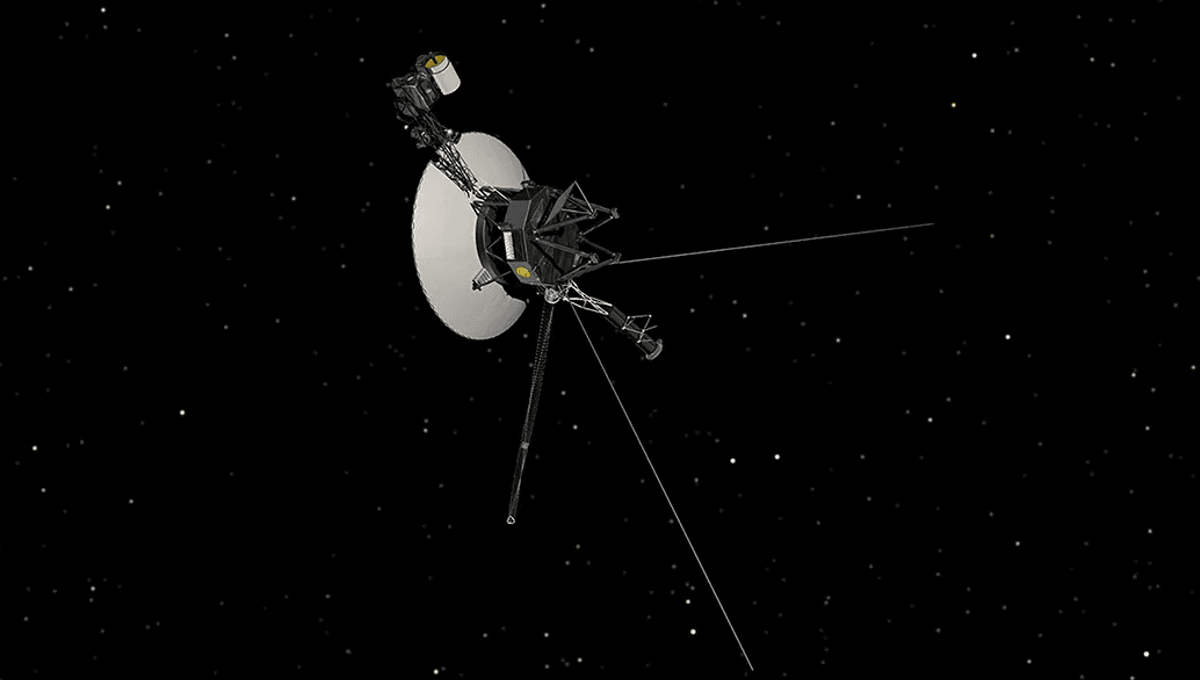Voyager 1 & 2 Could Be Detected From Almost A Light-Year Away With Our Current Technology

Voyager 1 & 2 Could Be Detected From Almost A Light-Year Away With Our Current Technology
The Voyager probes were the first spacecraft to go interstellar and after almost 50 years in space, they are pretty amazing. Voyager 1 is almost one light-day away from Earth, with Voyager 2 not too far behind. They communicate with humanity with a radio transmitter with a power of 23 watts. Basically, the light in your microwave has more power than this incredible pair of spacecraft.
As they travel through space, the signal gets fainter. That is just physics. Currently, one of the crucial antennas that keeps this link going is getting a needed refurbishment just to make sure the connection stays loud and clear. Researchers have looked into how far away the Voyager spacecraft could go while we could still detect them, and worked out something really interesting. We can track the Voyagers to 0.97 light-years or about 354 light-days. To leave the Solar System, the Voyagers had to go really fast, but they slowed as they traveled by the gas giants due to the pull of the Sun. Still, they travel incredibly fast, with Voyager 1 moving at 61,500 kilometers (38,000 miles) per hour. This means that to reach 354 light-days from us, Voyager 1 will still have almost 17,000 years to go. Not that its nuclear battery would last that long! This specific nugget of information comes from a paper by Dr Sofia Sheikh looking at the detection of technosignatures. These are the expected evidence of advanced civilizations and can take the form of peculiar stellar occultations (which might imply the presence of a Dyson Sphere), pollutants and other non-natural gases in the atmosphere of an exoplanet, and of course, the detection of telecommunication signals. The latter has been the main focus of the Search for Extraterrestrial Intelligence (SETI) for many years. We know that our telecommunications leak into space, so it made sense to look for alien communications, whether intentional messages to the stars – like ours from Arecibo – or from unintentional leakage, and not just from TV. Different research, led by Ramiro Caisse Saide, highlighted that a civilization with a Square Kilometer Array telescope like us would know we are here within 10 light-years due to signals from mobile phone masts. If we focus on airport radar, they could find us as long as they are within 200 light-years. “We have technology here and produce radio emissions. We want to understand if a civilization with enough technology could detect our own radio emission,” Saide, from the University of Manchester, told IFLScience. Sheikh and Saide’s research topics look at our own technosignatures and how this might make us discoverable. In Sheikh’s paper, the emission from the Deep Space Network, which connects humanity to its robotic explorers across the Solar System and beyond, would be detectable up to 65 light years away. There are several thousand star systems in that volume of space – and maybe one knows we are here. A paper discussing this work is published in The Astronomical Journal.


